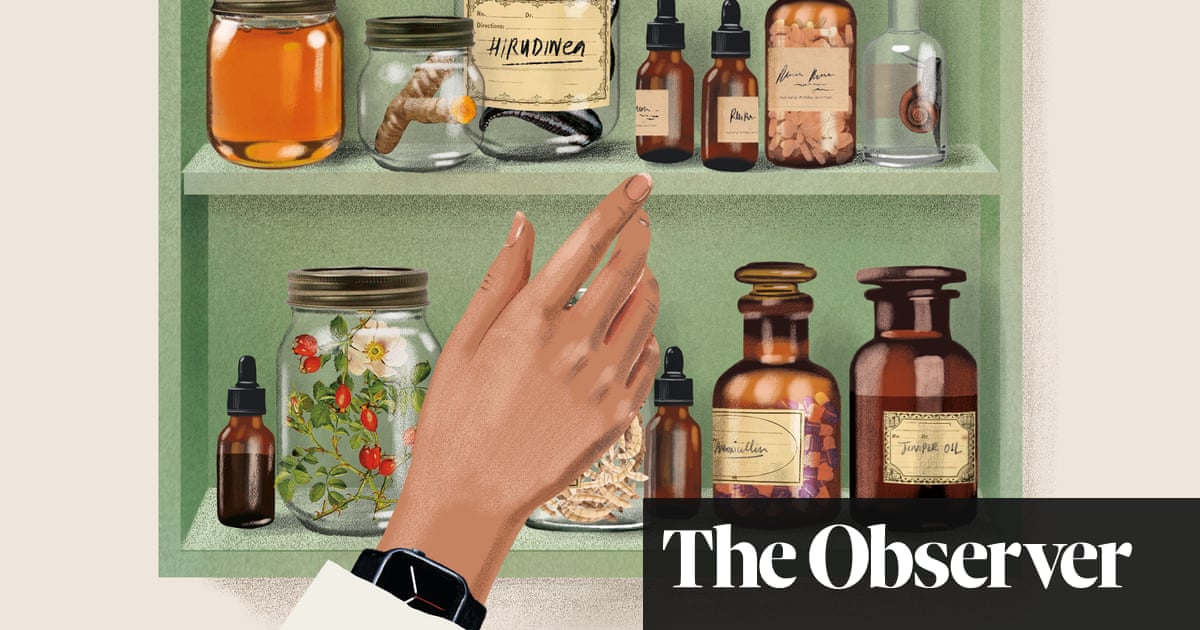
GPs and pharmacists say they are struggling to get hold of antibiotics for infections including strep A, as the government continues to insist there are no shortages.
It comes as the UK Health Security Agency (UKHSA) said the number of children under 15 who had died from invasive strep A illness in England had risen to 13, taking the UK total to 15.
Dr Leyla Hannbeck, the head of the Association of Independent Multiple Pharmacies, said there had been a surge in prescriptions for antibiotics such as penicillin and amoxicillin since October and particularly in November, adding that they are not only used to treat strep A but other infections too.
When pharmacists go online to order stock through the wholesaler, “they get a message basically coming through saying that the stock is unavailable”, she said.
If the antibiotics did become available, she added, they were rationed and within a few minutes had gone, while prices had also risen so pharmacists are being charged more.
The Pharmaceutical Services Negotiating Committee (PSNC), which represents NHS community pharmacies in England, has also flagged up difficulties with supplies.
“PSNC’s dispensing and supply team has received reports from some contractors and pharmacy teams who are finding it difficult to obtain certain antibiotics,” the committee said in a statement.
“Pharmacy teams are reporting that there is little or no stock of liquid amoxicillin and phenoxymethylpenicillin [Pen V] showing at wholesalers, and that the supply challenges have now extended to other oral antibiotics too.”
Suraj Shah, PSNC’s drug tariff and reimbursement manager, said the fact that GPs had been advised to set a low threshold for prescribing antibiotics to children presenting with symptoms associated with strep A could be contributing to shortages.
“This is likely to lead to an increase in prescribing of certain antibiotics such as Pen V, which can have an impact on supply,” he said.
The health secretary, Steve Barclay, sought to allay concerns over shortages on Wednesday, saying suppliers had stock and could move it around the country as necessary.
The Department of Health and Social Care reiterated the message on Thursday. “There is no supplier shortage of antibiotics available to treat strep A. As the secretary of state said this morning, we sometimes have surges for products and increased demand means some pharmacies are having difficulties obtaining certain antibiotics,” a spokesperson said.
“We are working urgently with manufactures and wholesalers to explore what can be done to expedite deliveries and bring forward stock they have to help ensure it gets to where it’s needed, to meet demand as quickly as possible and support access to these vital medicines.”
Hannbeck, however, said such statements were causing confusion.
“People think that there is stock available and they come to pharmacies, and we just have to turn them away because there isn’t,” she said. “It’s affecting everybody, all pharmacies, everywhere in the country, because we all use the same wholesalers.”
Martin Sawer, the executive director of the Healthcare Distribution Association (HDA), which represents wholesalers, said the increased demand for certain antibiotics was linked to increased GP prescribing and anticipation by some pharmacies of demand amid concerns that whole school-year groups of children may need the drugs.
But whether there was a shortage depended on the point of view, he said. “There’s a shortage for pharmacists, for wholesalers it’s a bit of a shortage until we get replenished, but the government is right in saying there isn’t a shortage in the country.
“We haven’t got a manufacturing breakdown or we haven’t got a regulatory challenge,” he said. “The supply chain should correct itself, hopefully, but we’re in for a bumpy few days at the moment.”
Prof Kamila Hawthorne, the chair of the Royal College of GPs, said some of its members had also reported that they were struggling to access some antibiotics.
“It appears that these supply issues are localised and we have been assured by the government that there is no national shortage of antibiotics,” she said.
She said GPs would work with pharmacists to prescribe suitable alternatives for patients when a specific type or form of antibiotic was not available.
“While this is not ideal as there will have been reasons for the original prescription and children are often able to take liquid medication more easily, the main priority must be to ensure our young patients receive suitable treatment as soon as possible,” she said.
The NHS Specialist Pharmacy Service recently published guidance on using solid forms of certain antibiotics in children.
“Whole doses of solid oral dosage forms can be used ‘off-label’ in place of oral suspensions. This includes use for group A streptococcal infections,” the guidance says, adding tips on how to mask the taste of certain bitter medications.
Hawthorne stressed that clarity was crucial.
“When a prescribed medication is unavailable or in short supply, it is worrying for patients and frustrating for GPs and pharmacists who are already under considerable pressure and are now seeing an increasing number of parents worried that their child might have a serious case of strep A,” she said.
“It’s vital that the government communicates clearly and in a timely way to healthcare professionals if there are any supply issues at a local or national level, and that mitigations are in place.”











